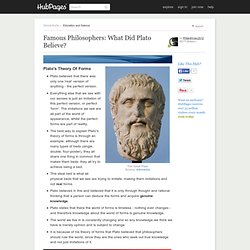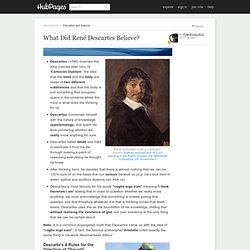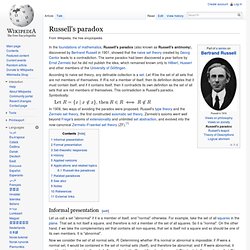

Examine how Situation Ethics may be applied to one ethical issue of your choice. Consider the fact that 80% of the world's population earns less than $10 a day ($3650 a year) whilst 1% of the world's richest owns 90% of wealth and you could argue that the problem of wealth disparity is one of humanity's largest ones.

The argument for wealth disparity is not a simple one however, and even if situational ethics is applied the matter does not become simple. One of the rules of situational ethics (SE) - to distribute to those who need it - applies most to the dynamic of this argument. Under SE, the world's richest would need to hand over the majority of their wealth to those poorer than them because they don't need it as much as the rest of the world - the wealthy have everything they need to live, whilst the poor are not getting far more basic resources like food and shelter. The poorest would benefit greatly and the rich should live with the sacrifice they made because it is the loving thing to do. The counter argument would be that SE would say that yes, we should. Famous Philosophers: What Did John Stuart Mill Believe?
Famous Philosophers: What Did Plato Believe? Plato identifies three elements of the 'soul'.

He uses the term 'soul' but this should not be confused with spirituality or a part of someone that is separate from their physical body. Rather, Plato uses it as a general term for the thing that makes people act.. The three elements are: Reason - this is much like 'wisdom' in societies and is the element that considers all of the facts known to a person and then decides what means are best to reach the ends. Famous Philosophers: What Did Aristotle Believe? Famous Philosophers: What Did Friedrich Nietzsche Believe? Famous Philosophers: What Did Leibniz believe? Famous Philosophers: What Did René Descartes Believe?
Descarte's 4 Rules for the Direction of Thought These are rules he abided by when trying to decide whether something was true or not.

In his own words: "Never to accept anything as true that I did not know to be evidently so... to include in my judgements nothing more than what presented itself so clearly and so distinctly to my mind that I might have no occasion to place it in doubt. " Here he states that when making a more complicated decision, he would only use evidence that was self-evident (you cannot ever question that they are wrong e.g. triangles have three sides). "The second, to divide each of the difficulties that I was examining into as many parts as might be possible and necessary in order to solve it" meaning that he would split a decision into its fundamental elements. Note: These may all seem like very simple and commonplace steps in reasoning to you, but at the time Descartes' method was heralded as very thorough. Descartes and God 1. Weaknesses. Russell's paradox. In the foundations of mathematics, Russell's paradox (also known as Russell's antinomy), discovered by Bertrand Russell in 1901, showed that the naive set theory created by Georg Cantor leads to a contradiction.

The same paradox had been discovered a year before by Ernst Zermelo but he did not publish the idea, which remained known only to Hilbert, Husserl and other members of the University of Göttingen. In 1908, two ways of avoiding the paradox were proposed, Russell's type theory and the Zermelo set theory, the first constructed axiomatic set theory. Zermelo's axioms went well beyond Frege's axioms of extensionality and unlimited set abstraction, and evolved into the now-canonical Zermelo–Fraenkel set theory (ZF).[1] Informal presentation[edit] Now we consider the set of all normal sets, R.
Formal presentation[edit] and the following axiom schema of unrestricted comprehension: for any formula P with only the variable x free. For . A contradiction. Set-theoretic responses[edit] Filozofija.org.